Building a community seed bank in Kenya
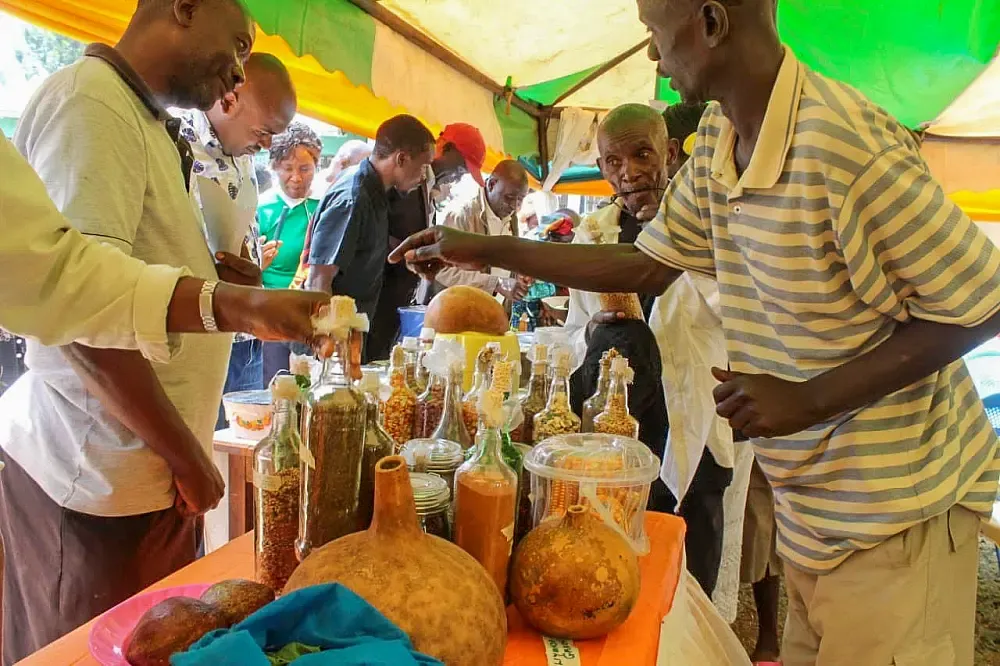
This article, written by Valentina Dereani, originally appeared in College of the Atlantic News.
Utilizing a $10,000 Projects for Peace award, Valentina Dereani ’27 is advancing the preservation of biodiversity while empowering small-scale farmers.
During the summer after her first year at College of the Atlantic, Valentina Dereani ’27 traveled to Kenya to establish her Project for Peace: “Mbegu Kwa Jamii, a Community Seed Bank for resilience and empowerment of Kenyan food systems.” Dereani, who is from Italy and is a graduate of United World College Adriatic, was successful with her work, establishing the first farmer-owned, independent community seed bank in the Vihiga County, Western Kenya region. Her work will help preserve the indigenous biodiversity and gastronomic heritage of the area, while financially supporting small-scale farmers. The members of Sunkai Farmers Cooperative Society, Ltd., are the stewards of this new seed bank, ensuring that good quality seeds can be publicly accessed by small-scale providers.
Immediately after arriving in Nairobi, I joined the Sunkai Farmers Cooperative in Gilgil, Naivasha county, home to the headquarters of the Seed Savers Network. I took in training from seed savers and researchers on the traditional practices of saving seeds, explored the nursery, the compost and vermiculture setups, and a site for vegetable drying where women are trained in food preservation as an empowerment for their jobs and to tackle food insecurity.
We visited the farm of Beatrice, a “seed ambassador” and member of Seed Savers Network, touring her vertical farming structures, the food forest with indigenous, nutrient-fixing trees, and the local varieties of crops grown in the farm. A variety of cherry tomato brought from a German researcher did surprisingly well for that dry and hot climate! Beatrice praised the value of these international connections among seed savers.
The next day we traveled to Nairobi to visit the National Genebank, where a researcher from the Kenyan Agriculture and Livestock Research Organisation shared samples of local crops and explained the in-situ and ex-situ preservation of crop species that is executed in their center. Farmers were very curious to hear about the genebank and their work.
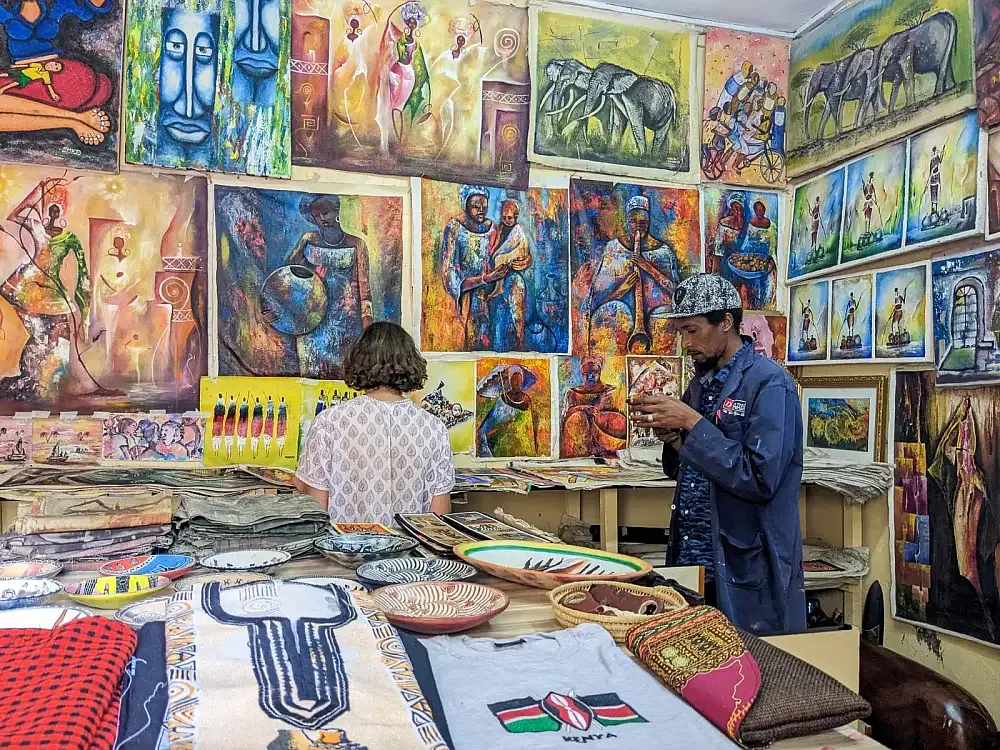
After the trainings and the visit in the central region of the country we traveled back to Vihiga County, where the farmers of the cooperative are from, and I received an energetic welcome from the members of the community, with dancing and religious music. I was able to stay with my friend Paul, his wife Sylvia, and their three-year-old daughter Amara. Sylvia is deaf so I spent time learning a bit of Kenyan sign language on top of Kiswahili and Kinyore, the local Luhya language.
We soon began work on our building. In just five days, the walls for an extension were raised, a window was built, cables for electricity were connected, the rooftop nearly completed. Women volunteered to carry tins of water for the mix of sand and cement and the work proceeded quickly, raising excitement and surprise in the community. Many stopped by to ask what we were up to.
As soon as the shelving was built, we started collecting seeds from the local markets and farmers. We moved from market to market and searched for farmers with different varieties of indigenous seeds: sorghum, millet, beans, maize kienyeji, sagaa (spiderplant), mitoo kali (bitter slenderleaf), mrenda (jute mallow), and the most precious livokoi, a nutritious and endangered variety of amaranth, Amaranthus dubius. It has been neglected and it is now almost extinct, but luckily enough we found some farmers that still grow it. Many farmers from Sunkai also brought their own seeds and we started the process of viability testing.
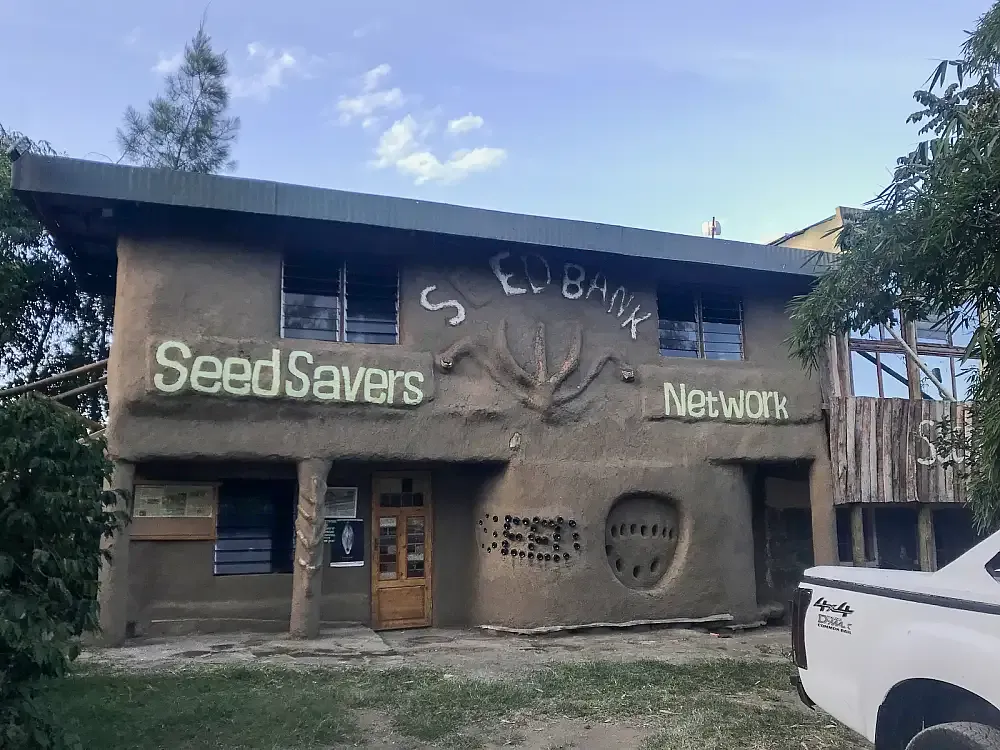
We spent days selecting and winnowing seeds, cleaning vodka bottles collected from trash and sanitizing them (our upcycled containers), and crushing bricks to make powdered preservative. We quickly reached about 60 different accessions, and even though some seeds have a lower viability, we learned through the process, and the interest from the farmers and the community grew.
On the ninth of August, the Sunkai Farmers Cooperative Society launched its seed bank with a Seed and Food Diversity Fair. Preparations were hectic, but it ended up being very colorful and successful, with many visitors. There were many people attending, dancing the traditional Esikuti dance, and enjoying all sorts of traditional foods. Did you know that you can eat a banana bud? I definitely didn’t, but I had the chance to try it and it tasted delicious. It was flowery. Many of the accessories of seeds present in the seedbank were displayed to the public, as well as traditional preservatives and organic fertilizers.
We cooked all night long preparing for the fair, making hundreds and hundreds of chapati; the conventional wheat ones, and traditional more nutritious alternatives with pumpkin or soya. The visitors were curious and were lining up taste lisebebe, likhalapa, omurele, estipa, linyolonyolo. Many of these are neglected traditional foods, and the base ingredients are indigenous African leafy vegetables and wild forages. The intention of the fair was to celebrate the launching of the seed bank as well as to share the cultural and nutritional value of agrobiodiversity.
The fair drew many new members into the cooperative, grabbed the attention of farmers and villagers, and helped us establish a more solid partnership with other organizations involved in seed saving and agroecology. BioGi Gardening Innovation—a partner of the Alliance for Food Sovereignty in Africa—invited us for training in its center based in Elnuni, Vihiga. The farmers of Sunkai Cooperative had the chance to attend a capacity building session focused on advocacy. The official policy language in Kenya is English, but many farmers have trouble understanding the contents of policy proposals, and just accessing information regarding policy making is difficult for them.
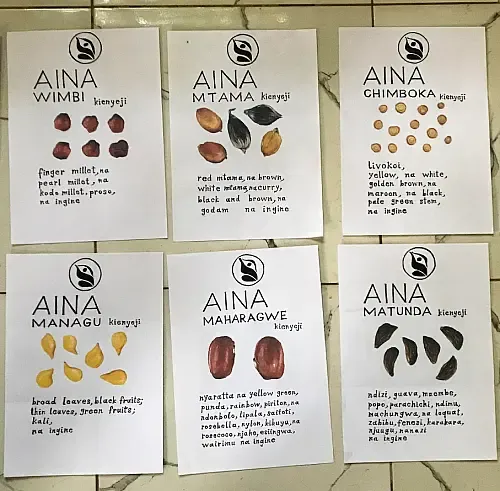
(Credit: Valentina Dereani )
The launching of the event was done, as well as our attempts to connect a broader network of seed saving and agroecological initiatives in the area. However, we still had some time and funds left before I had to leave. With the remaining resources, we had the chance to help Julie, a victim of domestic violence, set up a cereal grain business so that she could become financially independent and move out from her husband’s house with her kids. I am still supporting and facilitating that initiative from afar, and I keep in touch with Julie and her kids, Innocent, Hope, and Victoria.
We also had enough funds to support Evalyne, a woman also with three kids, who was about to be evicted from the single-room rental. With our help, she was able to purchase a piece of land where she could now build a house of her own and set up a small farm. Evalyne worked as a teacher, but she had not received her salary from the government for three months, therefore it has been very difficult for her to support her family, as the husband is unemployed. I am still communicating with her and Renzi, Ramsey, and Dempsey, her playful and very smart kids. I keep my passion and efforts alive from afar to support their family.
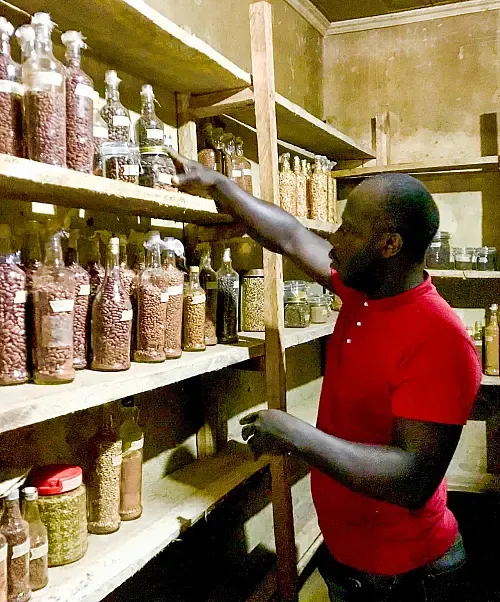
This project has changed, challenged, and inspired me. We collected lots of seeds and planted many of them. We are now waiting for their fruits. The relationships with the people and especially my closest friendships have been my biggest source of inspiration and strength in these months. So, I want to thank Paul, Silvia, Josephine, Talia, Samson, Rosemary, Risper, Alice, Ruth, Christine, Evalyne, Julie—and many others that I cannot all name here—for the good they have instilled in me, and I want to recognise their precious presence and contributions, as this project was theirs as much as it was mine. Sunkai Community Seed Bank is now autonomously running. I will keep working on this project, supporting Sunkai Farmers Cooperative as much as I can, and I will keep in touch with the people that I grew very close to. I will be looking for additional funds, and I am sure that not too long from now I am going to be back there.
The Projects for Peace program, created by the philanthropist Kathrywn W. Davis, awards $10,000 to student projects from 92 Davis United World College Scholar partner institutions each year that aim to promote peace around the world.

